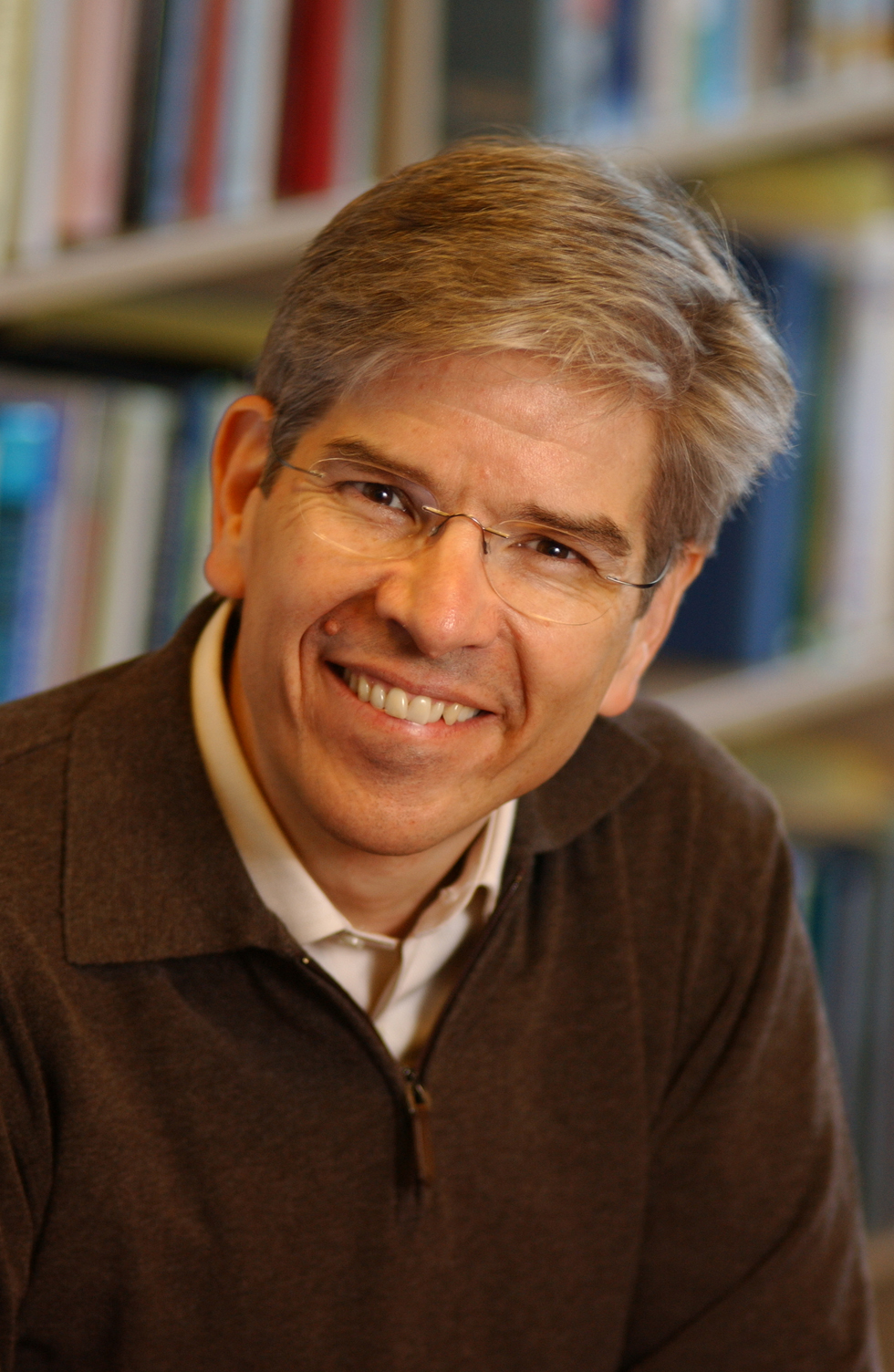- Paul Romer
Infobox_Scientist
name =Paul Romer

caption = Paul Michael Romer.
birth_date =
birth_place =
death_date =
death_place =
residence =USA flagicon|USA
nationality = American flagicon|USA
field =Economist
work_institution =Stanford University
alma_mater =University of Chicago
doctoral_advisor =
doctoral_students =
prizes =
religion =
footnotes =Paul Michael Romer (born 1955) is an
economist and professor atStanford University . He is considered as an expert oneconomic growth .Romer earned a B.S. in
physics in1977 and a Ph.D. in economics in1983 , both from theUniversity of Chicago . Romer was named one of America's 25 most influential people byTime Magazine in1997 [cite news| title=Time's 25 Most Influential Americans | work=Time Magazine | publisher = Time Inc. | issue=url=http://www.time.com/time/magazine/article/0,9171,986206-10,00.html | accessdate=2007-12-21 | date=1997-04-21] , and in 2000 started the online educational companyAplia . He has been awarded the Horst Claus Recktenwald Prize in Economics in Nuremberg, Germany. Romer is the son of former Colorado GovernorRoy Romer .Academic contributions
Paul Romer's most important work is in the field of economic growth. Economists studied long-run growth extensively during the 1950s and 1960s. The work of
Robert Solow , for example, established the primacy of technological progress in accounting for sustained increases in output per worker. Romer's work in the 1980s and 1990s amounted to constructing mathematical representations of economies in whichtechnological change is the result of the intentional actions of people, such as research and development.Dominant theme
“Economic growth occurs whenever people take resources and rearrange them in ways that are more valuable. A useful metaphor for production in an economy comes from the kitchen. To create valuable final products, we mix inexpensive ingredients together according to a recipe. The cooking one can do is limited by the supply of ingredients, and most cooking in the economy produces undesirable side effects. If economic growth could be achieved only by doing more and more of the same kind of cooking, we would eventually run out of raw materials and suffer from unacceptable levels of pollution and nuisance. History teaches us, however, that economic growth springs from better recipes, not just from more cooking. New recipes generally produce fewer unpleasant side effects and generate more economic value per unit of raw material.
Every generation has perceived the limits to growth that finite resources and undesirable side effects would pose if no new recipes or ideas were discovered. And every generation has underestimated the potential for finding new recipes and ideas. We consistently fail to grasp how many ideas remain to be discovered. Possibilities do not add up. They multiply.” [ [http://www.econlib.org/library/Enc/EconomicGrowth.html "Econlib.org"] ]
Publications
*"Growth Cycles," with George Evans and Seppo Honkapohja (
American Economic Review , June 1998). [http://www.jstor.org/stable/116846 Jstor link]
*"Preferences, Promises, and the Politics of Entitlement" (Individual and Social Responsibility: Child Care, Education, Medical Care, and Long-Term Care in America, Victor R. Fuchs (ed.), Chicago: University of Chicago Press, 1995).
*"New Goods, Old Theory, and the Welfare Costs of Trade Restrictions," Journal of Development Economics, No. 43 (1994), pp. 5-38.
*"Looting: The Economic Underworld of Bankruptcy for Profit" with George Akerlof (Brookings Papers on Economic Activity 2, William C. Brainard and George L. Perry (eds.), 1993, pp. 1-74). [http://www.jstor.org/stable/2534564 Jstor link]
*"Economic Integration and Endogenous Growth," with Luis Rivera-Batiz (Quarterly Journal of Economics CVI, May 1991, pp. 531-55). [http://www.jstor.org/stable/2937946 Jstor link]
*"Endogenous Technological Change" (Journal of Political Economy , October 1990). [http://www.jstor.org/stable/2937632 Jstor link]
*"Increasing Returns and Long Run Growth" (Journal of Political Economy, October 1986). [http://www.jstor.org/stable/1833190 Jstor link]
*"Cake Eating, Chattering and Jumps: Existence Results for Variational Problems" (Econometrica 54, July 1986, pp. 897-908). [http://www.jstor.org/stable/1912842 Jstor link]References
ee also
Endogenous growth theory External links
* [http://www.stanford.edu/~promer/ Paul Romer's home page at Stanford]
* [http://www.reason.com/0112/fe.rb.post.shtml Interview with Reason Magazine]
* [http://www.aplia.com Aplia.com]
Wikimedia Foundation. 2010.
